‘HSE University Considers Training in AI Technologies to Be a Basic Requirement’
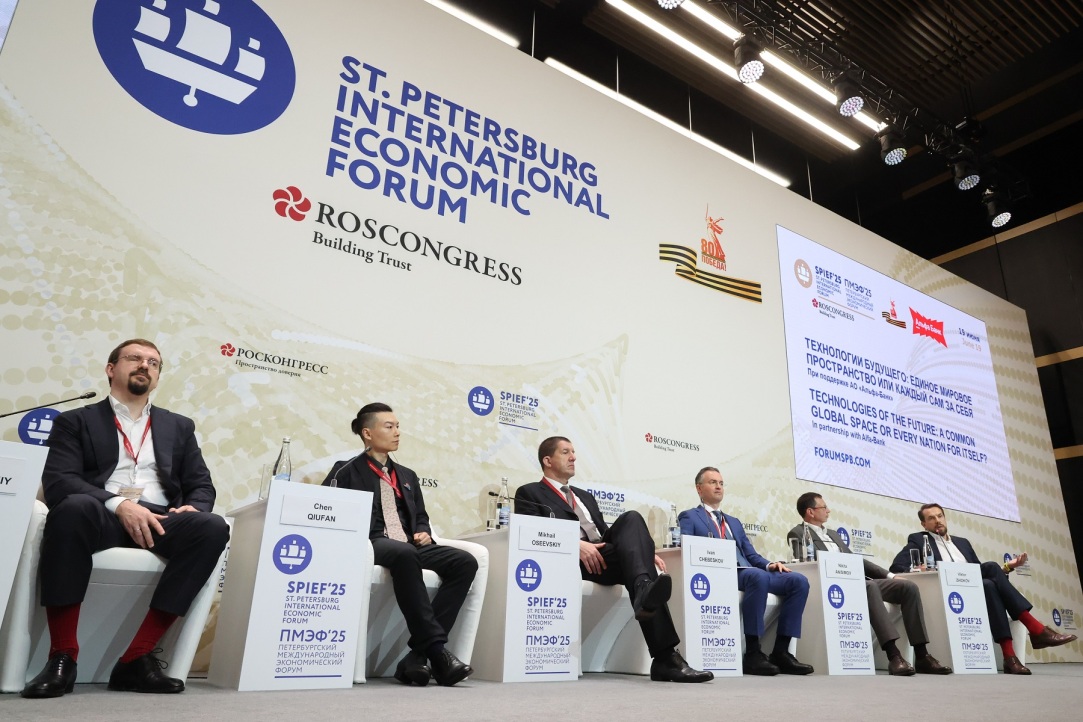
‘Technologies of the Future: A Common Global Space or Every Nation for Itself?’ was the title of a session held on June 19, 2025, with the support of Alfa-Bank at this year’s St Petersburg International Economic Forum (SPIEF-2025). The discussion featured HSE University Rector Nikita Anisimov and was moderated by journalist, TV presenter, and public figure Ksenia Sobchak.
Opening the discussion, Ksenia Sobchak noted that we are currently living through a second technological revolution. The first was the widespread adoption of computers and the internet; the second is centred on AI, which, she said, means we are about to witness a vast number of breakthroughs in the economy, medicine, and human life in general.
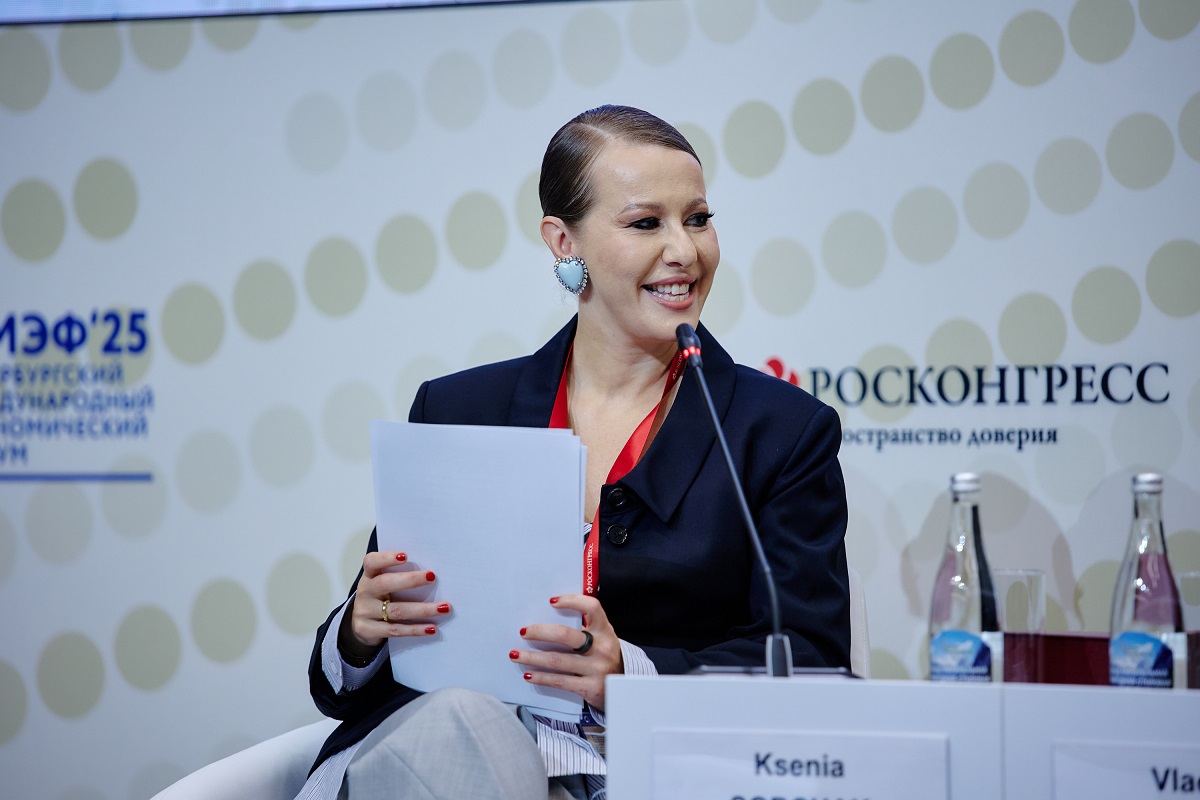
‘It would seem that this is the perfect moment to join forces as never before, to face new challenges and opportunities together. But these breakthroughs are happening against a backdrop of global technological fragmentation—and that poses a great many additional challenges for all of us,’ the moderator stressed.
Vladimir Verkhoshinskiy, Chief Managing Director of Alfa-Bank, stated that the politics of technological isolation leads to a dead end, and for this reason, his bank prioritises openness. In the industrial economy of the past, one could patent a gear, a machine, or a robot. But in today’s digital economy, it is impossible to patent code—any innovation is easily replicated—and he considers this a positive development.
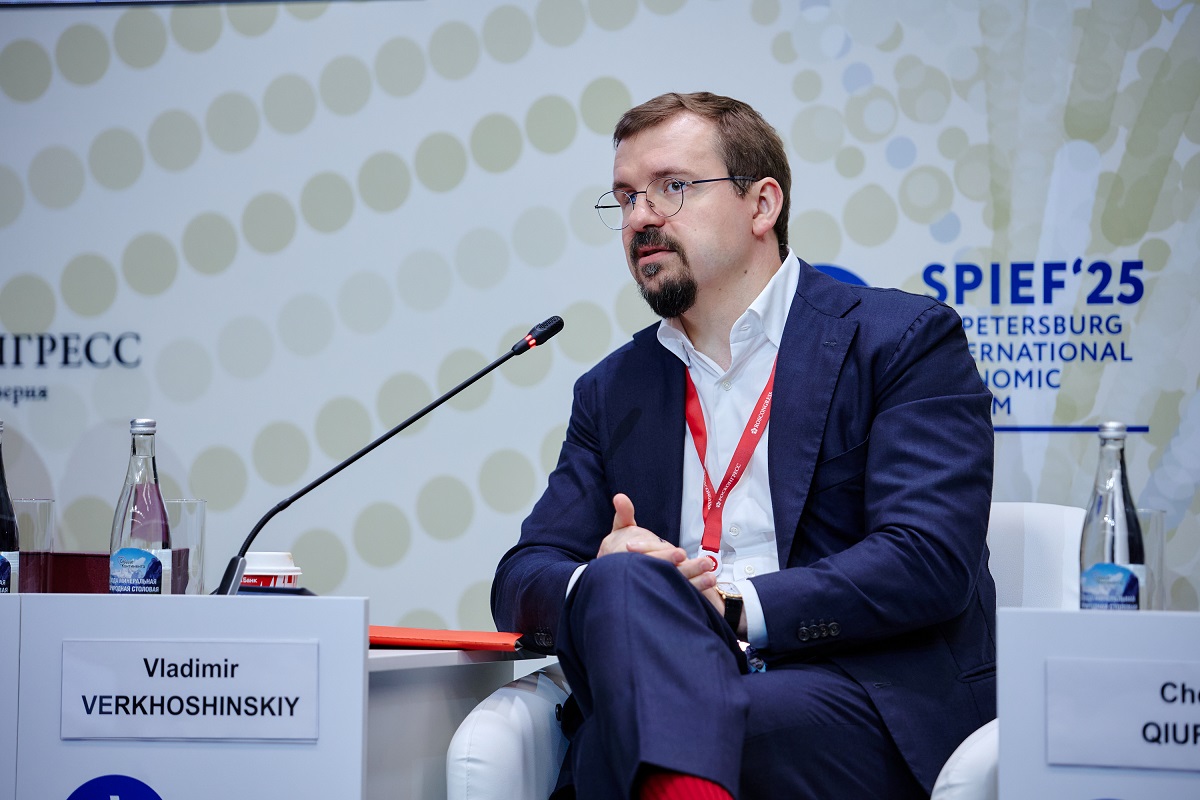
‘Western countries were at their greatest in the 1990s and early 2000s, when they were technological leaders and openly shared their technologies with the world,’ added Vladimir Verkhoshinskiy. In his view, many national leaders today are pursuing protectionist policies, seeking to close everything off and prohibit access.
Turning to Nikita Anisimov, Ksenia Sobchak observed that as a key institution for training future professionals, HSE University must also be grappling with these modern challenges. In particular, she asked how the university is adapting its programmes to meet the demands of AI.
Nikita Anisimov clarified that the entire education system can be seen as a forge for talent, though some institutions simply prepare students for the workplace, while others create the technologies of tomorrow, reflect on the future, and shape future values. ‘It is important for us—and there are not many such universities in the world—to have an environment that generates future technologies. The world needs universities that are not just a forge for talent, but for the technologies of the future,’ he said. Such institutions—universities—exist both in Russia and globally, and they are incorporating AI technologies into their curricula and teaching these technologies.
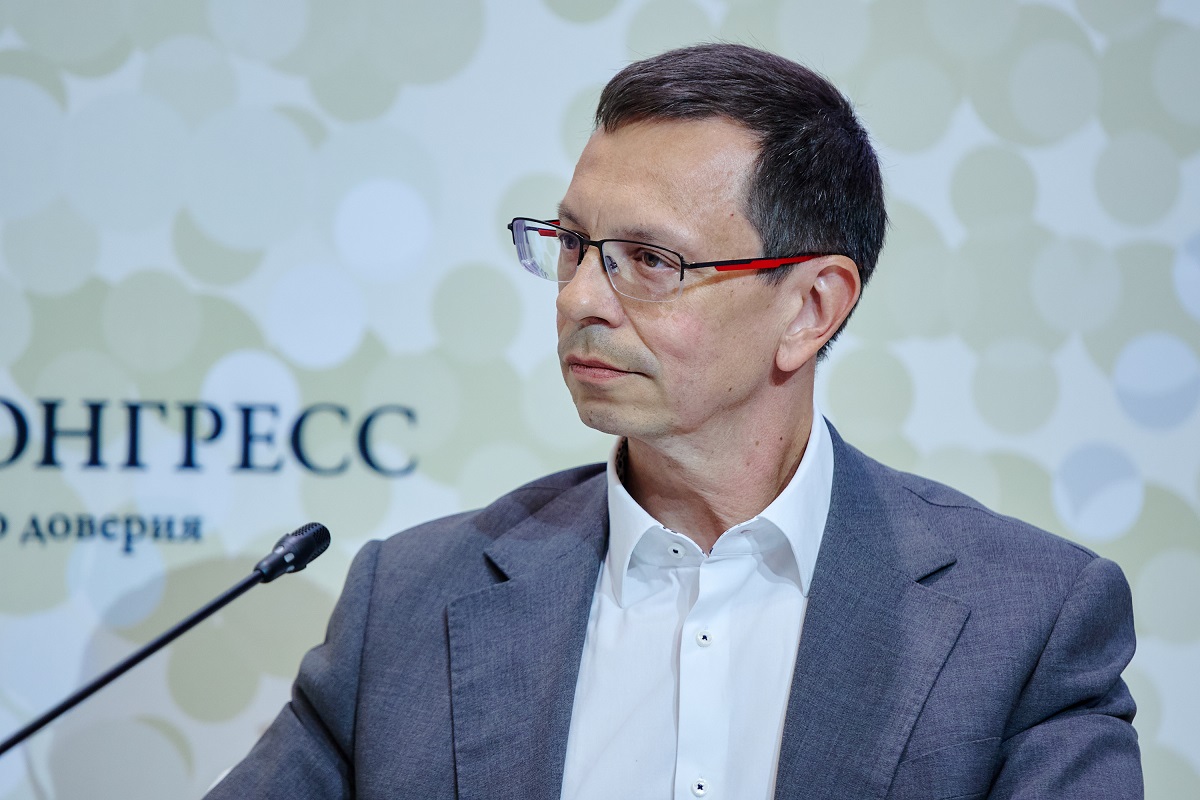
‘HSE University considers training in artificial intelligence technologies to be a basic requirement. Our students take a digital literacy exam in their first year—and if they fail, they are expelled,’ explained the rector.
He also noted that just 1% of the world’s leading universities are competing for the top 1% of global talent, and that every applicant sees studying at such a university as entering a unique environment and culture—an investment in oneself, a way to unlock one’s potential—rather than mere preparation for a specific job. According to Nikita Anisimov, this broader understanding of the university has traditionally been characteristic of Russia as well.
The HSE rector also proposed a hypothesis: that the trend towards training students for specific job roles today is driven by strong demographic pressures on the labour market. Therefore, resolving the demographic issue is key to preserving the essence of university education.
‘What is the point of a forge for talent? To fill jobs. And then you say to every university—even those that are supposed to nurture environments for shaping the future—“look, we just do not have enough people.” That is why solving the demographic issue is critical to achieving technological leadership,’ Nikita Anisimov emphasised.
The moderator then directed a series of questions to Mikhail Oseevskiy, President of Rostelecom, regarding the potential for transforming various AI tools used for editing, design, visuals, and more into a single unified system. ‘It is like having many different wallets with different currencies in them—it seems organised, but in reality it is chaos,’ Ksenia Sobchak remarked.
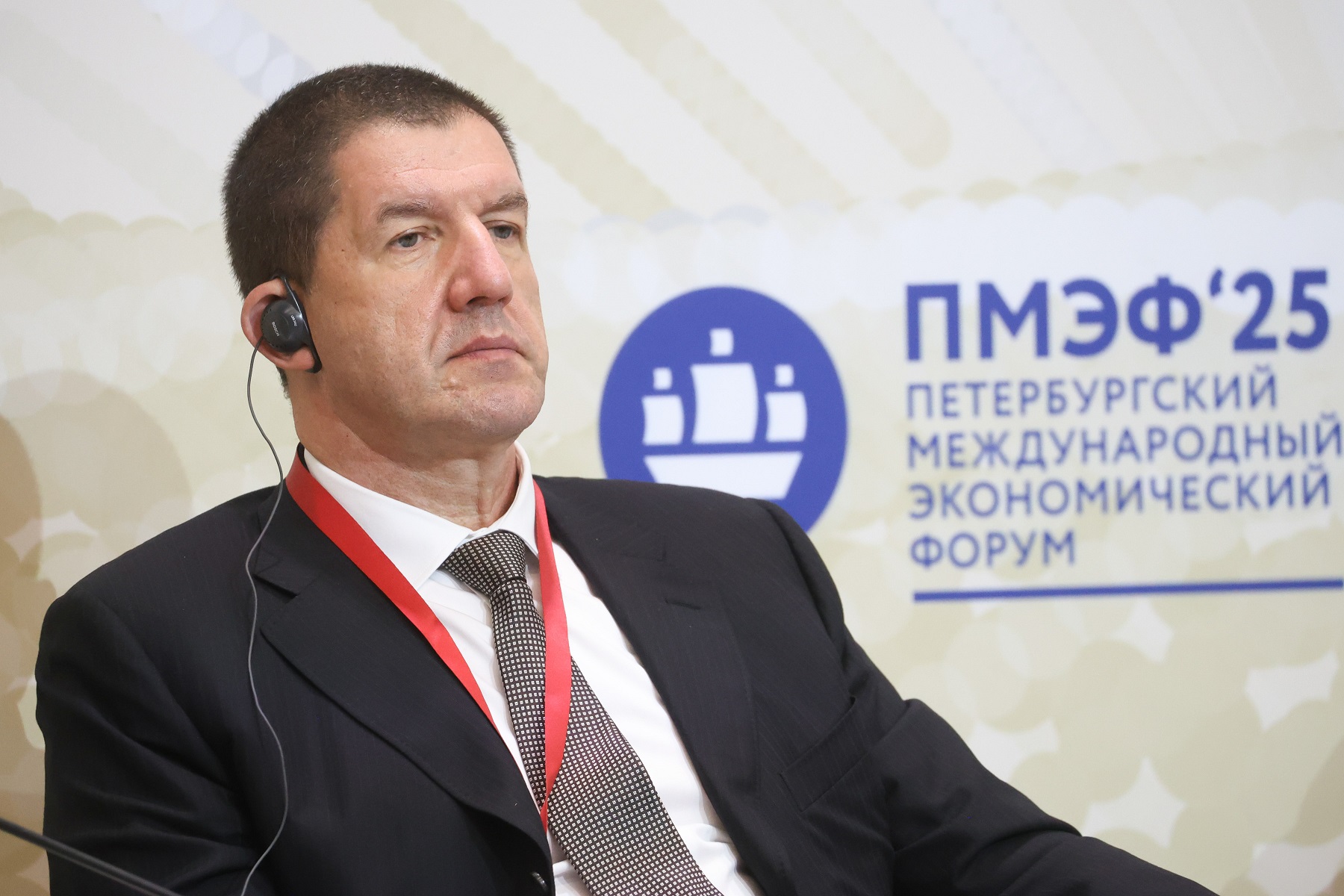
Mikhail Oseevskiy responded that it is impossible to create a single universal solution that would work effectively for every type of task. ‘That is why we develop tools for ourselves first, and then bring them to market—like our “neuro-gateway” product. It allows staff and clients to access different AI engines “under the bonnet,” depending on the task at hand. These can include global models,’ he explained.
At the same time, he stressed the importance of data sovereignty and security: we cannot load just any information into solutions that do not belong to us. In corporate operations, he said, interaction should be carried out through neural networks hosted in our own data centres, trained specifically on our own data sets.
‘We believe in diversity—but within the framework of a single product, ensuring both personal and corporate security,’ Mikhail Oseevskiy concluded.
Other participants in the discussion included Deputy Finance Minister of the Russian Federation Ivan Chebeskov, Chairman of the Moscow Exchange Management Board Viktor Zhidkov, and science fiction author and futurist from Singapore Chen Qiufan, author of the bestseller AI 2041.
To conclude the session, Ksenia Sobchak invited the participants to briefly respond to the question posed in the session’s title. As it turned out, the speakers were unable to reach a consensus on whether a unified global technological space could be achieved.
Vladimir Verkhoshinskiy, Chief Managing Director of Alfa-Bank, offered the most optimistic outlook: ‘Technology has no borders—especially now, in the digital age, just like friendship and love. In the short term, over the next 30–50 years, it may be every nation for itself. But looking ahead strategically, 100–200 years into the future, we may well see a single global—and hopefully beautiful—technological space.’
See also:
HSE University at SPIEF: Innovations, BRICS, and Healthcare
The St Petersburg International Economic Forum took place on June 18-21, 2025. HSE experts have discussed cooperation between universities, investors, and technology companies in the development of innovations, sharing the best practices in healthcare and drug safety, as well as charity and humanitarian collaboration in the BRICS countries. As a result, several cooperation agreements have been signed during the forum.
'We Are Open to Cooperation on an Equal Basis and Will Find a Path to a Better Future'
How are digital platforms contributing to sustainable development? How is international cooperation progressing in Eurasia? How should the Russia-India business dialogue proceed? HSE University's scientists presented their answers during expert discussions at the St Petersburg International Economic Forum.
HSE Distinguished Professor Sergey Karaganov Moderates Plenary Session at SPIEF
At the plenary session of the St Petersburg International Economic Forum (SPIEF), Russian President Vladimir Putin participated alongside the Presidents of Bolivia and Zimbabwe, Luis Alberto Arce Catacora and Emmerson Dambudzo Mnangagwa. For the first time, a representative from HSE University—Sergey Karaganov, Academic Supervisor of the Faculty of World Economy and International Affairs and HSE’s distinguished professor—served as the moderator of the plenary session.
HSE University Experts Take Part in Preparing Report ‘Russia—Oman—Partnership Prospects’ at SPIEF 2024
The report, prepared by the Roscongress Foundation and experts of the HSE Institute for Public Administration and Governance, covers the current situation in the economy of the Sultanate of Oman and the prospects for Russian-Omani partnership. Prior to SPIEF 2024, HSE was the first Russian university to sign a cooperation agreement with the University of Nizwa (Oman).
HSE University at SPIEF: From Cyber Gaming to Arctic Development
The timeliness of Russia’s first cyber gaming platform, the importance of closing the gender gap in the IT industry, and the future of international cooperation in the Arctic were just some of the issues discussed at the St Petersburg International Economic Forum (SPIEF). The HSE News Service reports on some of the topics of discussion at the forum.
Qatari Ambassador Ahmed Al Thani Visits HSE University
During the St Petersburg International Economic Forum, HSE University-St Petersburg hosted Sheikh Ahmed bin Nasser bin Jasim Al Thani, Ambassador of Qatar to the Russian Federation.
HSE University at SPIEF: Smart Migration and the Future of the Global Economy
Sessions attended by HSE University experts at the recent St. Petersburg International Economic Forum focused on the digitalisation of migration management, regionalisation of the world economy, participation of companies in global value chains, and many other topics. Below, HSE News Services covers some of the main sessions of the event.
HSE University and Rossotrudnichestvo Agree to Train Specialists in Teaching Russian as a Foreign Language
HSE University and Rossotrudnichestvo have signed an agreement to establish a Russian Language Centre at HSE University in St Petersburg. It will train teachers of Russian studies and future leaders of educational programmes and courses of Russian as a foreign language. The document was signed by HSE University Rector Nikita Anisimov and Head of Rossotrudnichestvo Yevgeny Primakov at the St Petersburg International Economic Forum.
HSE University and Agency for Strategic Initiatives Sign Cooperation Agreement
HSE University and the Agency for Strategic Initiatives (ASI) have agreed to cooperate in the development of new technologies, the digital transformation of the economy, and the social development of the country. The agreement was signed by HSE University Rector Nikita Anisimov and ASI Director General Svetlana Chupsheva at the St Petersburg International Economic Forum.
HSE University Concludes 12 Cooperation Agreements as Part of SPIEF
During the St. Petersburg International Economic Forum, HSE Rector Nikita Anisimov signed cooperation agreements with regional heads, university rectors, heads of companies, government agencies, public organisations, and cultural institutions. This cooperation with new partners will cover a wide range of areas—from educational and research projects to student expeditions and youth policy.


